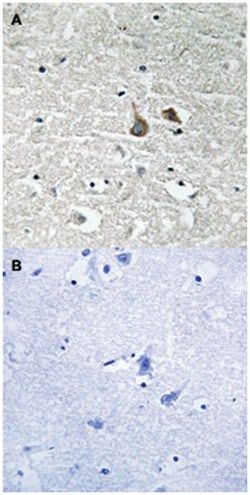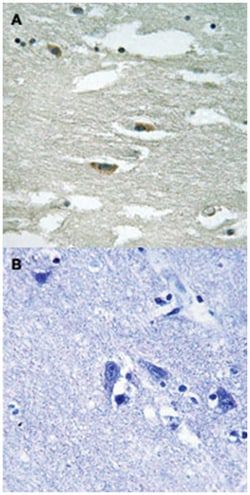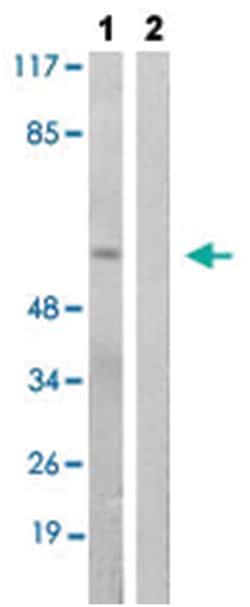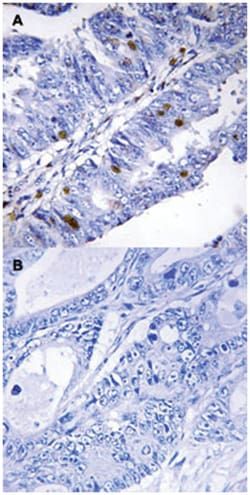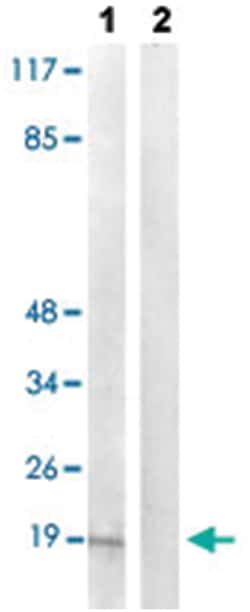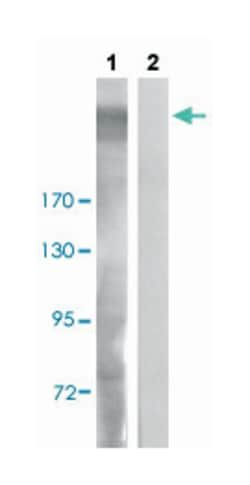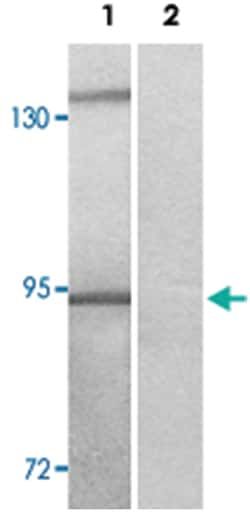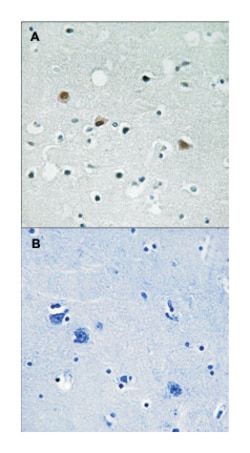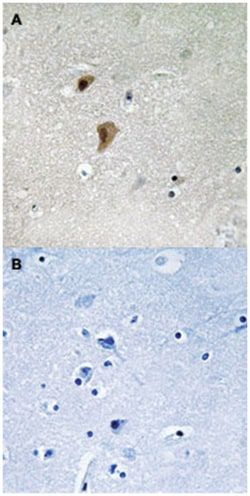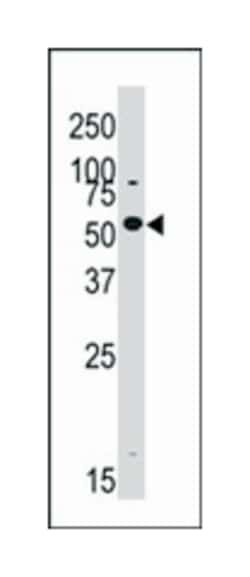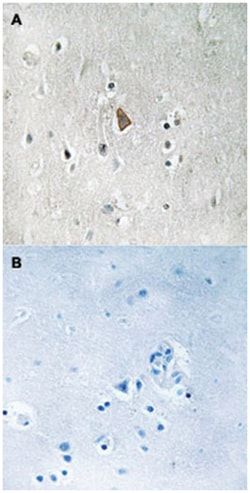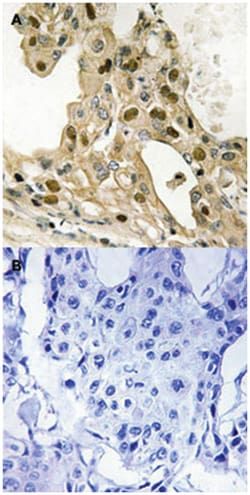HSF1 (phospho T142), Rabbit anti-Human, Mouse, Rat, Polyclonal Antibody, Abnova™
Manufacturer: Abnova Corporation
Select a Size
| Pack Size | SKU | Availability | Price |
|---|---|---|---|
| Each of 1 | 89-130-726-Each-of-1 | In Stock | ₹ 57,138.00 |
89-130-726 - Each of 1
In Stock
Quantity
1
Base Price: ₹ 57,138.00
GST (18%): ₹ 10,284.84
Total Price: ₹ 67,422.84
Antigen
HSF1
Classification
Polyclonal
Description
Rabbit polyclonal antibody raised against synthetic phosphopeptide of human HSF1.
Formulation
In PBS (without Mg2+and Ca2+), 150mM NaCl, pH 7.4 (50% glycerol, 0.02% sodium azide)
Gene Alias
HSTF1
Host Species
Rabbit
Purification Method
Affinity Chromatography
Regulatory Status
RUO
Gene ID (Entrez)
3297
Target Species
Human, Mouse, Rat
Form
Liquid
Applications
Immunohistochemistry (PFA fixed)
Conjugate
Unconjugated
Dilution
Immunohistochemistry (1:50∼1:100) The optimal working dilution should be determined by the end user.
Gene
HSF1
Gene Symbols
HSF1
Immunogen
Synthetic phosphopeptide (conjugated with KLH) corresponding to residues surrounding T142 of human HSF1.
Quantity
100 μL
Primary or Secondary
Primary
Test Specificity
HSF1 (phospho T142) polyclonal antibody detects endogenous levels of human HSF1 only when phosphorylated at threonine 142.
Content And Storage
Store at -20°C.Aliquot to avoid repeated freezing and thawing.
Description
- The product of this gene is a heat-shock transcription factor
- Transcription of heat-shock genes is rapidly induced after temperature stress
- Hsp90, by itself and/or associated with multichaperone complexes, is a major repressor of this gene
- [provided by RefSeq
